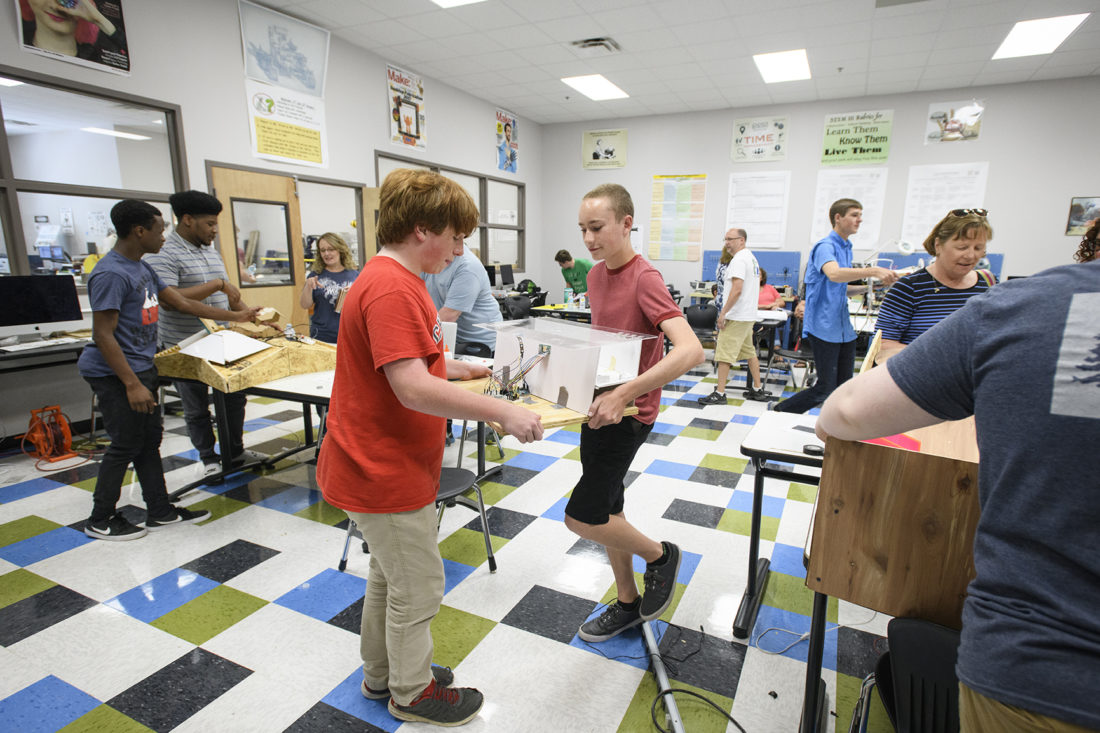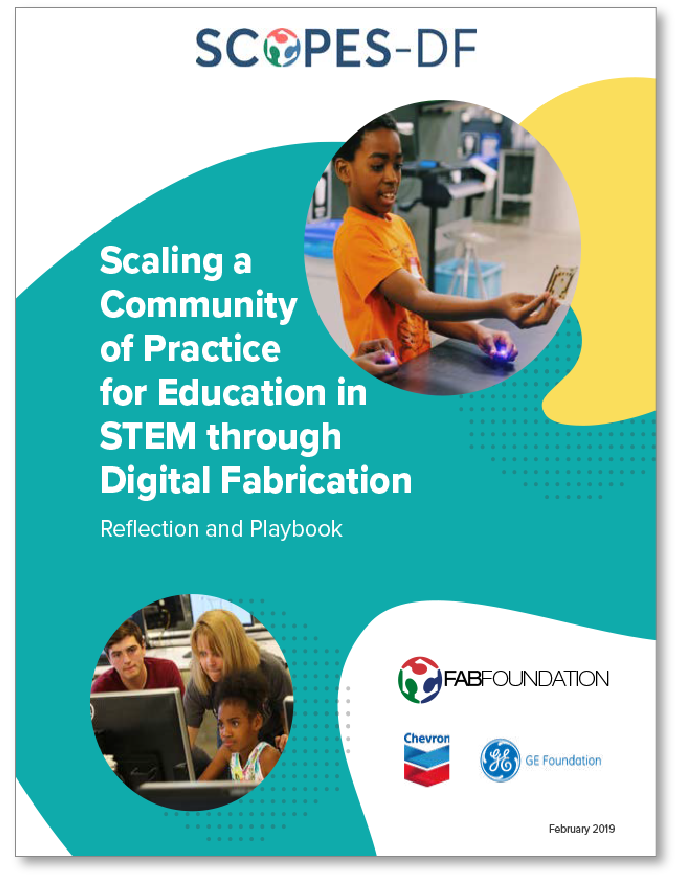The SCOPES-DF Reflection and Playbook presents an emerging framework that can be used to integrate digital fabrication into primary and secondary schools.
Download the Reflection and Playbook

THE OPPORTUNITY
“There are examples of formal education integrating digital fabrication into project-based learning environments, with great success…. Unfortunately, these examples are the exception, not the rule. The lack of a national consensus regarding standards for teaching or learning with digital fabrication in the classroom severely inhibits formal institutions from adopting a potentially powerful toolset for engaging students in STEM and the arts.“ -Sherry Lassiter, CEO Fab Foundation, and co-authors at the Teaching Institute for Excellence in STEM 
A Pressing Need
The Reflection and Playbook is written in response to the pressing need to provide academic coherence to the rapid growth and integration of artifact creation and digital fabrication concepts into K–12 classrooms. During the past decade, the Maker Movement in Education, designated as ‘Tinkering’, ‘Makerspaces’, ‘FabLearn Labs’, ‘Design-Make-Play’, ‘Maker-Centered Learning’, or Fab Labs, has increased usage of digital fabrication devices, such as 3D-printers, laser cutters, or milling machines in classrooms.
PLAY 1: THEORETICAL BACKGROUND
The two dominant theories that shape K-12 conversation surrounding the nature of knowledge and how a student learns about the tools and process of digital fabrication are constructivism and constructionism. SCOPES-DF builds on these theories through appreciative inquiry and situated learning to gain a commonly shared understanding and worldview for bringing digital fabrication into the formal K-12 environment. In the Playbook we provide an overview of each theory as well as what each might mean for teaching and learning with digital fabrication.
PLAY 2: Accessibility and Accountability
Our SCOPES-DF model recognizes that every student brings cultural knowledge, prior experiences, and performance styles to academic knowledge and intellectual tools. Our model aligns with the recently adopted Every Student Succeeds Act or ESSA, that guides state governments to “provide all children significant opportunity to receive a fair, equitable, and high-quality education, and to close educational achievement gaps.” This includes students from groups who historically are less engaged in STEM subjects such as girls and young women, African Americans, American Indians/Alaska Natives, and Latinos.
PLAY 3: NEW TOOLS AND APPROACHES
The Fab I Can Statements are a formative assessment tool that measures achievement and the digital fabrication learning experience intended for K-12, and are the result of a collaborative effort between SCOPES-DF and the larger Fab Lab Network. Our website provides classroom lessons that incorporate our model and the I Can Statements to engage students in hands-on learning opportunities and other foundational elements of digital fabrication. The goal of these lessons is to provide students with an introduction to the principles of Fab learning and its opportune place in K−12 classrooms.
